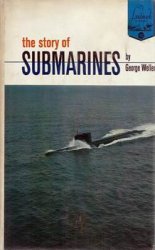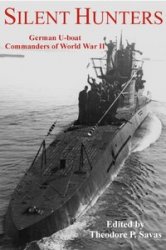The torrid pace of continental expansion by the United States in the 1830s and 1840s had brought the nation to the California and Oregon shores and cast her gaze across the Pacific Ocean. In 1852 Commodore Matthew C. Perry, commander of the U. S. Navy East India Squadron, received orders to conduct operations in the Pacific for the purpose of surveying the China seas, Northern Pacific, and the Bering Straits and make direct contact with areas such as China and Japan, which had the potential of increased trading prospects with the United States. The contact had a great impact on both countries, but most specifically Japan. The latter experienced a political and cultural struggle that brought Japan into the modern era and resulted in that nation becoming a major industrial power in the space of just a few generations. The selections below are excerpted from the Secretary of the Navy Reports for the years 1852 to 1854 and provide a glimpse at the operational goals of Perry’s fleet. Note that a slight hint of European and American smugness and superiority finds expression in portions of the reports.
Secretary of the Navy Report 1852
... During the past year the attention of this department, in conjunction with the Department of State, has been directed to the employment of the East India squadron in an enterprise of the great moment to the commercial interests of the country—the endeavor to establish relations of amity and commerce with the Empire of Japan.
... The extension of the domain of the United States to the shores of the Pacific, the rapid settlement of California and Oregon, the opening of the highway across the isthmus of Central America, the great addition of our navigation employed in trade with Asiatic nations, and the increased activity of our whaling ships in the vicinity of the northern coasts of Japan, are now pressing upon the consideration of this government the absolute necessity of reviewing our relations to those Eastern communities which lie contiguous to the path of our trade____
... That Oriental sentiment which, hardened by the usage and habit of centuries, has dictated the inveterate policy of national isolation in Japan, it is very apparent, will not long continue to claim the sanctity of a national right to the detriment of the cause of universal commerce and civilization, at this time so signally active in enlarging the boundaries of human knowledge and the diffusion of comfort over the earth. The day has come when Europe and America have found an urgent inducement to
Demand of Asia and Africa the rights of hospitality, of aid and comfort, shelter and succor, to the men who pursue the great highroads of trade and exploration over the globe____
The government of the United States has happily placed itself in the front of this movement; and it may be regarded as one of the most encouraging guarantees of its success, that the expedition which has just left our shores takes with it the earnest good wishes, not only of our own country, but of the most enlightened communities of Europe. The opening of Japan has become a necessity, which is recognized in the commercial adventure of all Christian nations, and is deeply felt by every owner of an American whale-ship, and every voyager between California and China.
The important duty has been consigned to the commanding officer of the East India squadron, a gentleman in every respect worthy of the trust reposed in him, and who contributes to its administration the highest energy and ability, improved by long and various service in his profession____
Secretary of the Navy Report 1853
... Commodore Perry was intrusted [sic] with the delicate task of endeavoring to open commercial intercourse with the Japanese government. After visiting several smaller islands and having favorable interviews with their inhabitants, he proceeded with the steams Mississippi and Susquehanna, and the sloops-of-war Saratoga and Plymouth to Yedo [sic] Bay, in Japan, where he arrived on the 8th of July last. After much effort, he succeeded in having an interview with one of the ministers of state, delivered in person a communication from the President of the United States proposing to form commercial relations with Japan, gave notice of his intention to return in the ensuing spring for a reply to his proposition____
Secretary of the Navy Report 1854
... Commodore Perry, with the steam-frigate Powhatan, as his flag-ship, ... arrived at Yedo [sic] Bay, Japan, on the 13th of February, for the purpose of fulfilling the plans of which he had notified them the year before, and endeavoring to establish commercial relations between Japan and the United States. By indomitable perseverance and remarkable management, he succeeded in finally overcoming the obstinacy and prejudices of the Japanese government, and induced it to enter into a treaty of amity and peace, by which two of its ports, Hakodade and Simoda, were opened to vessels, and shipwrecked mariners of American vessels are guaranteed to have ample protection and
Kind treatment on whatever part of the coasts they may be cast.
The above-mentioned ports were fully surveyed by our vessels, and are represented to be very convenient and commodious. Presents were also exchanged between the Japanese government and the United States____
Source: Report of the Secretary of the Navy, December 4, 1852 (Washington, D. C., 1852); Report of the Secretary of the Navy, December 5, 1853 (Washington, D. C., 1853); Report of the Secretary of the Navy, December 4, 1854 (Washington, D. C., 1854), Department of the Navy, Navy Historical Center, Washington, D. C. (Http://history. navy. mil/bios/ Perry_mc_secnav. html)




 World History
World History









